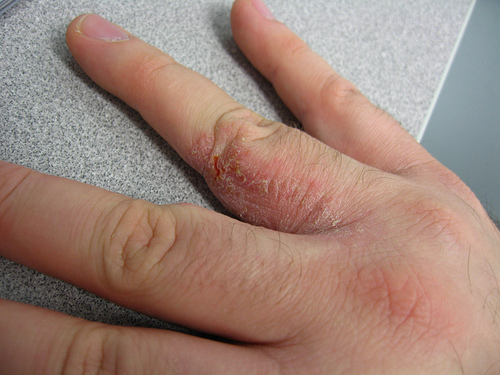
If your skin is problematic, it will probably be even more so when you are traveling. The simple reality is that sensitive skin can be thrown off course by new environments and the disruption of your normal routine. But all is not lost, and it is possible to travel with skin that is difficult to manage. To do so, follow the tips below.
Maybe it won’t be as bad as you think
Before we get into some concrete advice for traveling with sensitive skin or a skin condition, it must first be said that travel also has the potential to improve your situation. For example, some people may find that traveling in an environment where the air is drier or more humid (depending on the condition) can actually help resolve their skin issues. Traveling can help you in another sense as well, as you should find yourself less stressed while on the road. Stress can aggravate skin issues very easily and travel can be a stress killer, provided you don’t overload your itinerary and/or travel in conflict zones.
All of that said, let’s be real, travel can also be very difficult with skin issues. So let’s talk about how to deal with that.
1. Know what your problem is
If you haven’t already done so, you should get an official diagnosis from a dermatologist. You may find that short-term treatment can help you resolve the issue or you may find that you may be dealing with something chronic. In either case, you will have a better sense of what you need to do to deal with it, whether that includes recommendations for certain medicines or topical creams, diet, and/or other lifestyle changes.
2. Establish a routine and try to stick with it
If a certain hypoallergenic soap helps you keep your skin clean while avoiding outbreaks of eczema or other skin conditions or if you find that washing your face with a salicylic acid solution helps keep your acne at bay, make sure you travel with those products. In fact, buy enough for your trip and then a bit extra, just in case. You should not plan on arriving at your destination and buying the first mysterious cream or soap with an indecipherable label that you see in the local pharmacy. This is unlikely to end well for you. Take your routine from home and bring it with you. You may need to adjust it as needed, but starting from scratch will be much more problematic.
3. Know what your triggers are
If you know what your triggers are, you can make an effort to avoid them. For some people this could be certain foods, the humidity (or lack of it), certain skin products, washing or over-washing the skin, and/or air travel. For triggers that can’t be avoided, you need to do your best to mitigate them. For example, the air on an airplane is incredibly dry. It’s actually drier than the air found in the Sahara Desert. That could cause problems if you have a condition like eczema, so you need to plan ahead. For example, make sure that you are traveling with a small bottle of the moisturizer that you typically use as part of your skin care routine (3 ounces is the limit), which you can apply at various times during the flight.
4. Relax, stay hydrated, eat well and be active
It should go without saying that you should not be stressed during your trip. One of the reasons you took the trip in the first place may have been to de-stress. But travelers can easily forget about the latter items here. Staying hydrated is important for your health in general, but it can have a particular effect on the health of your skin. Along the same lines, a poor diet can manifest itself on the skin level and you should do everything in your power to eat healthy while traveling. Finally, get in some exercise while traveling. Don’t have the time or the space to do so? There’s always the 7 minute workout.
For a first person account on what it’s like to travel with a skin condition, check out this post written by a traveler with eczema. Feel free to chime in with your own experiences in the comments below.
Photo credit: flickr user h8met
If you enjoyed this post, consider following us on twitter at @sickontheroad and on facebook at facebook.com/sickontheroad. Thanks for reading!
